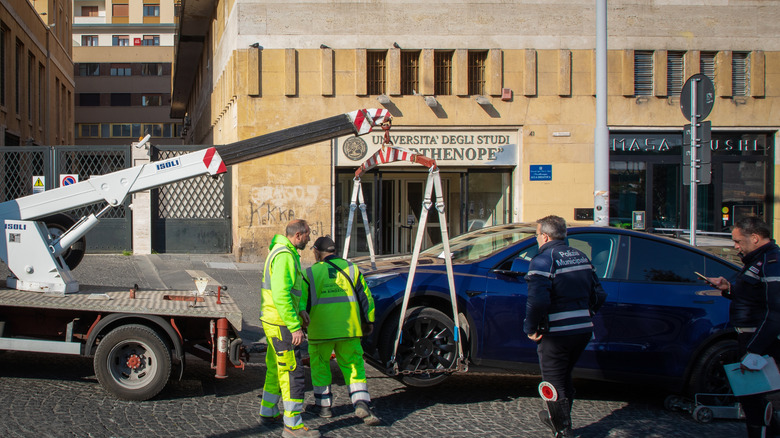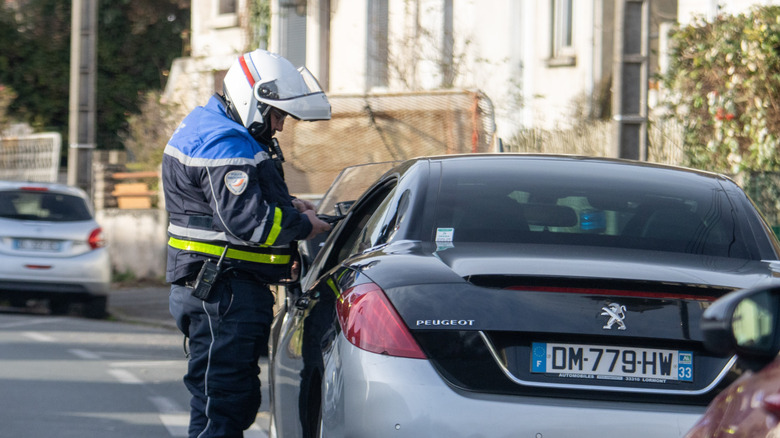Could You Lose Your Vehicle If You Get Caught Speeding In Florida?
According to the National Highway Traffic Safety Administration, speeding-related road accidents have led to at least 12,000 fatalities and 300,000 injuries in 2022 alone. These figures prove just how important it is to stick to the legal speed limits set in a particular area. For instance, in Florida, the maximum allowable speed is 70 mph. There are also other posted limits in specific locations across the state. It's 30 mph on residential streets, 15 or 20 mph in school zones, and 60 mph in state highways, except for interstates and four-lane divided highways with 70 and 65 mph, respectively.
What happens if you get caught speeding past these restrictions in Florida? Well, for one, you'll get ticketed (no, the fine for speeding won't reach $1 million) and might have to attend a mandatory hearing. But could your car be impounded? The short answer is no, you won't lose your vehicle for speeding in Florida. There could be other heavy penalties, though, especially with the new 'Dangerous Excessive Speeding' bill currently under consideration.
Florida's new speeding bill, explained
The Senate Bill 1782 prevents motorists from "dangerous excessive speeding." This means you can't go over the speed limit by 35 mph or more unless you're on a limited-access highway. On any other roads, you'll also be labeled as dangerously overspeeding if you're driving at least 50 mph over the posted limit, switching lanes, or overtaking while at 100 mph.
Once caught for the first time, the super speeder will either receive a $500 fine, be thrown in jail for a maximum of 90 days, or both. For the second offense, the fine and jail time are doubled to $1000 and six months. If you break the law again within five years after your last offense, you also risk getting your license suspended for 180 days to a maximum of one year. And, of course, like any other traffic violation, driver's license points work for speeding, too.
When the bill was first filed as House Bill 351 in early February 2025, the proposed penalties were much more severe. They included a maximum fine of $5000, license suspension right from the first offense, and your vehicle being impounded for no more than 30 days.
As of early April 2025, though, the bill was revised to include lighter penalties. So, no, your car won't be taken to the impounding lot if you were caught speeding in Florida. If the bill gets approved, it will be implemented by the first of July 2025.
The current penalties for speeding in Florida, explained
Under the current Florida state law, you won't face vehicle impoundment even if you speed past the legal limits. Instead, you'll be fined according to how much you went over the speed limit in that location. Drivers going over by one to five miles per hour will be let off with a warning. Meanwhile, drivers exceeding the limit by six miles per hour or more will get tickets as follows:
- 6-9 mph: $25
- 10-14 mph: $100
- 15-19 mph: $150
- 20-29 mph: $175
- at least 30 mph: $250
If you're illegally speeding while in a school zone and a busy construction area, you'll be charged with double the fines. If it's an enhanced penalty zone, though, the set fines will only increase by $50. Speeders going over five miles per hour or under but in a school zone or enhanced penalty zone will get a $50 ticket instead of just a warning. Individual counties in Florida can also impose their own set of fines. For instance, in Alachua County, the six to nine miles per hour range will set you back $124 instead of just $25, and going past the speed limit by 30 mph or more will require you to attend a hearing.
On top of fines, you'll automatically get three points added to your driver license for every speeding violation you make. Once these points pile up to 12 within a year, your license will be suspended for 30 days. 18 points within 18 months mean a three-month suspension, and 24 points gathered within three years is a year of suspension.
To avoid these penalties (and a dangerous wreck), always be on the lookout for speed limit signs. You can also use apps that can prevent you from being ticketed for speeding.


